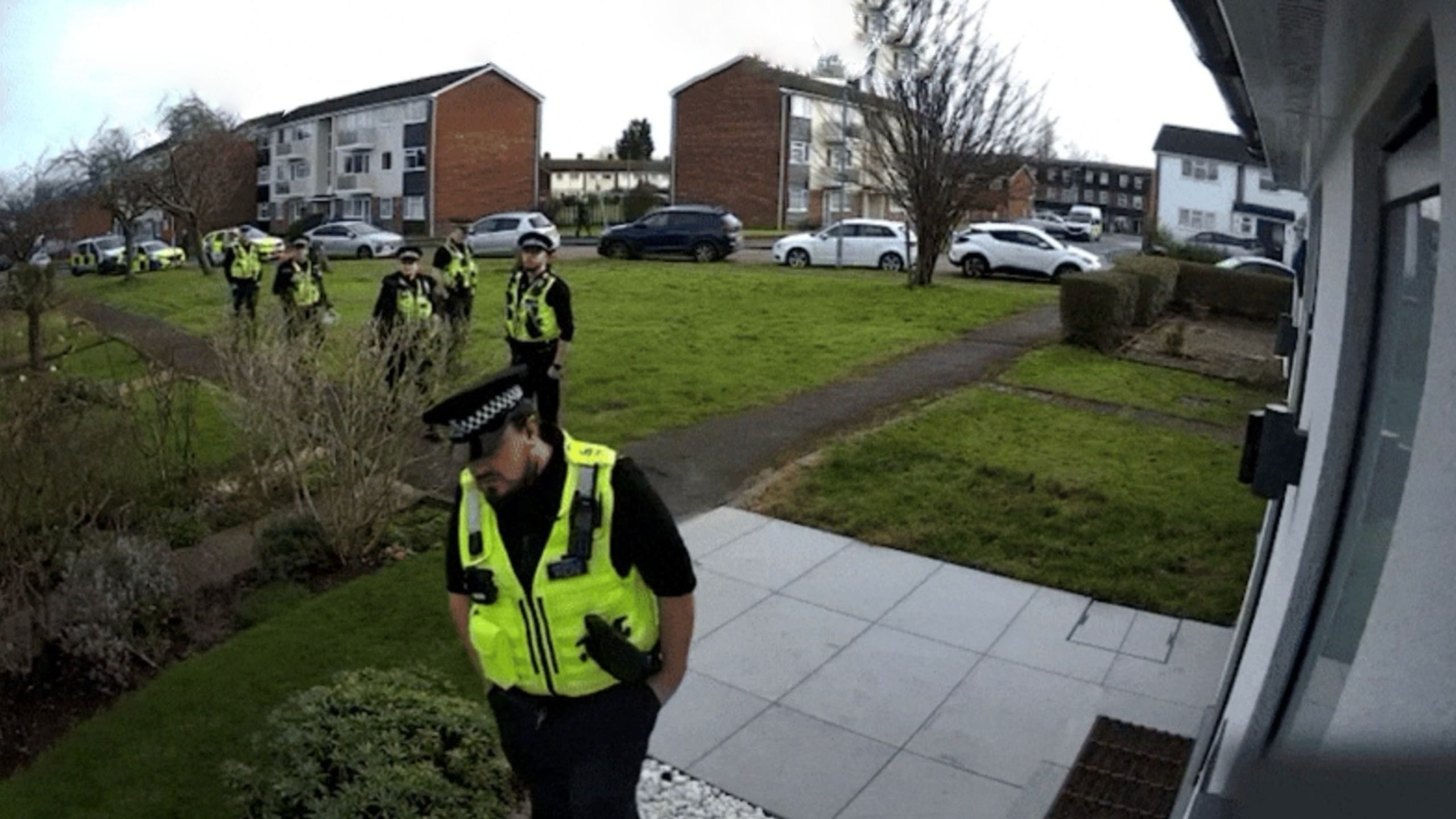You’d think that when a police force storms into a family home, arrests two parents in front of their child because of WhatsApp messages, and later admits they had no legal grounds to do so, the next logical step would be to apologize. A basic human gesture. “Sorry we got it wrong. Sorry we embarrassed you. Sorry we scared your kid.” That sort of thing.
But Hertfordshire Constabulary in the UK, having now paid out £20,000 ($26,000) to Maxie Allen and Rosalind Levine after unlawfully arresting them, appears to have skipped that part.
Not a word of apology. Not even one of those sterile, press-release apologies full of vague regret and zero responsibility. Just a quiet settlement and the hope, presumably, that everyone will move on.
This is the second payout the couple has received for the same incident. The arrests took place in January after a private WhatsApp message about their daughter’s school was treated as a police matter.
There were no threats; just a personal comment, in a closed conversation, that someone at the school didn’t like. Apparently, that was enough.
Allen, a Times Radio producer, described the moment the settlement came through. “It would be an exaggeration to say I burst into tears, but I did weep,” he said.
“They have admitted wrongful arrest, admitted unlawful arrest, and they’ve agreed to pay us damages. We’re really pleased that they’ve recognized that this was the wrong thing to do.”
All of that is important. But it’s not an apology.
Levine, a television producer, said she was glad the ordeal had concluded and hoped the case might stop this from happening to others. “However, I fear that we won’t be the last,” she added.
And who could blame her. The money helps, yes, but it doesn’t change the fact that the police showed up like it was a crime scene when in reality it was a frustrated parent tapping on a phone.
And this wasn’t a safeguarding emergency. It was a disagreement over support for their disabled daughter with epilepsy. The parents had been in regular contact with Cowley Primary School, questioning what they saw as inadequate care.
In return, the school took issue with the volume and tone of those concerns, flagged a private message as malicious, and brought in the police.
Allen put it bluntly. “The police should not be a tool for public authorities to close down legitimate comment and scrutiny.”
But right now, that is precisely how they are being used. Schools and local authorities are increasingly passing awkward conversations to the police, hoping for quick, intimidating solutions. And far too often, the police go along with it.
There is a wider problem here. In the UK, speech, even in private, is being treated with suspicion. Disagreements are being classified as threats. A WhatsApp message from a parent becomes a police matter, not because it poses danger, but because someone finds it inconvenient.
It is not just about the money. It is about the message this sends. If authorities can quietly pay out for arrests that should never have happened, without acknowledging the damage they caused, the system learns nothing.
The people affected are left with compensation, yes, but also with the knowledge that the institutions that wronged them still believe they owe no explanation.
This story was never about one couple and a WhatsApp message. It is about the line between ordinary speech and police power, and how fragile that line has become. It should not be this easy to cross it.










